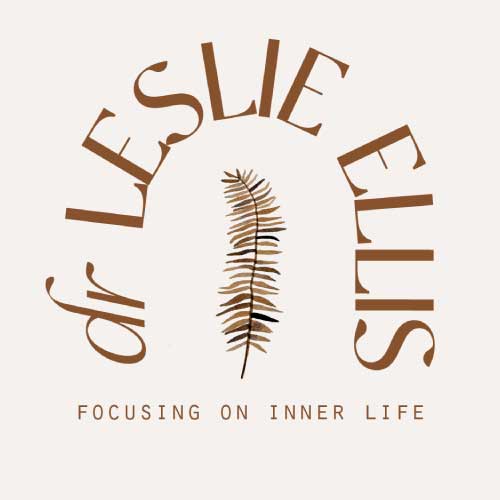The use of psychedelic substances as therapeutic agents is a trend with great promise, and a work in progress. There is an exciting but nascent body of research on efficacy and best practices, and there remains many legal and ethical obstacles. In the meantime, the use of plant medicines is growing like a weed – quickly, organically and not always in the most desirable way.
“It’s the wild West,” says Dr. Katherine Lawson, a pioneer in using embodied dreamwork practices to facilitate integration of psychedelic experiences. She notes that since people are using plant medicines anyway, and have been for ages, there is a need to help facilitators offer safe, constructive and respectful ways to help clients prepare for and integrate their experiences. This is why she founded Awake in the Dream School.
Psychedelic Therapies Show Promise
Anecdotally, Lawson has witnessed dramatic changes in her clients as a result of the use of plant medicine, and in a much shorter time frame than is typical with more traditional talk therapy. “One of the main reasons for that, is that while you are under the influence of the medicine (in this example, MDMA), you do not have much access to shame, fear and guilt. And if you are a skilled facilitator, you can help your client go back and heal things that are not approachable in normal waking consciousness, with all the layers of protective mechanisms. Those are gone. Your clients can see things so differently — from a loving, empathic perspective. That’s the gift of these medicines.”
Research backs this up and is demonstrating the efficacy of these substances in addressing conditions like depression, anxiety, PTSD, and addiction (Carhart-Harris & Goodwin, 2017; Mithoefer et al., 2018; Palhano-Fontes et al., 2019). The proposed mechanisms of action for psychedelics in therapeutic settings include their ability to reduce negative cognitive biases, enhance emotional processing, and promote neuroplasticity (Rucker et al., 2018).
Studies have shown that a single dose of psilocybin can produce rapid and sustained reductions in depressive and anxiety symptoms in patients with life-threatening cancer (Griffiths et al., 2016). MDMA-assisted psychotherapy has demonstrated promising results in the treatment of PTSD, with participants experiencing significant and lasting improvements in symptoms (Mithoefer et al., 2018). Psychedelics may also facilitate mystical-type experiences that can lead to profound personal insights and shifts in worldview, which some researchers believe can catalyze lasting positive changes in attitudes, mood, and behavior (Carhart-Harris & Goodwin, 2017).
The research on psychedelics is still in its early stages, and more large-scale, rigorous clinical trials are needed to establish their efficacy and safety profiles. The specialized nature of psychedelic-assisted therapy, which often involves extensive preparation, guidance during the experience, and integration support, can also limit accessibility and scalability.
Education Needed
Lawson has been working with users of plant medicine for a decade, and has learned much about the incredible potential for transformation these substances can bring about. But there is also much of concern in practices stemming from lack of knowledge, desire for a quick fix, and in the worst cases, dangerous and unethical practices. She established her school to educate mental health professionals who want to help those taking psychedelic substances to prepare for the journey and integrate the experiences afterwards. She said without these crucial pre- and post-journey steps, the experience can be no different from taking a drug trip – amazing, terrifying or anything in between.
She does not work with any of the substances directly, nor does she teach about how to administer the medicine and support the actual experiences (‘trip-sitting’). This is because so many of the substances are illegal. And yet there is a grey area, because they are also widely accessible. “The National Institute of Health (NIH) estimates 50 million Americans have interacted with these medicines since 2021, and that figure is probably very low,” according to Lawson.
Adapting Dreamwork for Integration
As someone who teaches embodied experiential dreamwork to therapists, I was particularly intrigued by how Dr. Lawson has adapted dreamwork techniques to support the integration of plant medicine journeys. She was one of the early providers of integration sessions via MAPS, the Multidisciplinary Association for Psychedelic Studies.
Over the past decade, Dr. Lawson has worked with hundreds of individuals navigating psychedelic experiences and has used her depth of experience to develop a training program to equip practitioners with the skills to support this process. A key distinction in her approach is the emphasis on preparation and integration, rather than facilitating the psychedelic journeys themselves. Her training, for those in the mental health and wellness industries, educates facilitators on 8 different medicines – learning what to expect and how to support clients through the experience. Lawson, said the specific substance and the nature of its use can vary so widely – from deep ceremonial practice to recreational highs. Most often, therapeutic plant medicine experiences are offered in facilitated group or one-on-one guided sessions.
The core post-session integration practice Lawson teaches is based on Embodied Imagination as developed by Dutch psychoanalyst Robert Bosnak. She has found that working with psychedelic visions requires some adaptation. “There’s an intensity to it, there’s a possession by it that’s got a different quality than a dream,” she explained. “If you guide someone back into their dream in a hypnagogic state, they always have a certain awareness of being in a dual state of consciousness. But with a psychedelic experience, for a while, they’re just in it — you can still guide them, but you might have to be more assertive, more directive.”
Another key difference, according to Dr. Lawson, is the need to be particularly mindful of scope of practice and ethical boundaries when working with clients who have had intense psychedelic experiences. “There’s a lot of people out there abusing the power imbalance that’s implicit in serving these medicines,” she said. “So we really lean into things like being trauma-informed and understanding contraindications.” Acute adverse effects can include anxiety, panic, and psychotic episodes, particularly in individuals with a history of mental health conditions (Carbonaro et al., 2016).
Overall, Dr. Lawson’s approach seems to strike an important balance — honoring the profound potential of psychedelics for healing and transformation, while also recognizing the need for skilled, ethical, and trauma-informed support. As someone who has seen the benefits of dreamwork in clinical practice, I’m intrigued by the possibilities of integrating these modalities to help clients navigate their most profound experiences.
To learn more about Awake in the Dream School and Dr. Lawson’s work, check out awakeinthedream.co For those on my email list, Lawson has generously offered a 10% discount on her 6-month certification program if you use this code upon checkout: AWAKE-Drleslieellis
–
Join me on substack for an ongoing journey into the world of dreaming!
www.https://dreamsdemystified.substack.com/
Subscribe to get full access to my complete book chapters, publication archives, and to come: recordings, lectures, papers and more.
–
References
Carbonaro, T. M., Bradstreet, M. P., Barrett, F. S., MacLean, K. A., Jesse, R., Johnson, M. W., & Griffiths, R. R. (2016). Survey study of challenging experiences after ingesting psilocybin mushrooms: Emphasis on context and impairment. Journal of Psychopharmacology, 30(12), 1268-1278. https://doi.org/10.1177/0269881116662634
Garasic, M. D., & Lavazza, A. (2021). Moral and social reasons to access psychedelic-assisted psychotherapy. BMC Medical Ethics, 22(1), 1-11. https://doi.org/10.1186/s12910-021-00588-x
Griffiths, R. R., Johnson, M. W., Carducci, M. A., Umbricht, A., Richards, W. A., Richards, B. D., … & Klinedinst, M. A. (2016). Psilocybin produces substantial and sustained decreases in depression and anxiety in patients with life-threatening cancer: A randomized double-blind trial. Journal of Psychopharmacology, 30(12), 1181-1197. https://doi.org/10.1177/0269881116675513
Mithoefer, M. C., Feduccia, A. A., Jerome, L., Mithoefer, A., Wagner, M., Walsh, Z., … & Doblin, R. (2018). MDMA-assisted psychotherapy for treatment of PTSD: study design and rationale for phase 3 trials based on pooled analysis of six phase 2 randomized controlled trials. Psychopharmacology, 235(11), 3137-3144. https://doi.org/10.1007/s00213-018-4988-2
Palhano-Fontes, F., Barreto, D., Onias, H., Andrade, K. C., Novaes, M. M., Pessoa, J. A., … & Araújo, D. B. (2019). Rapid antidepressant effects of the psychedelic ayahuasca in treatment-resistant depression: a randomized placebo-controlled trial. Psychological Medicine, 49(4), 655-663. https://doi.org/10.1017/S0033291718001356
Rucker, J. J., Iliff, J., & Nutt, D. J. (2018). Psychiatry & the psychedelic drugs. Past, present & future. Neuropharmacology, 142, 200-218. https://doi.org/10.1016/j.neuropharm.2017.12.040


